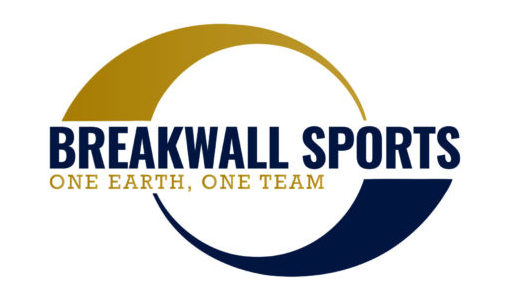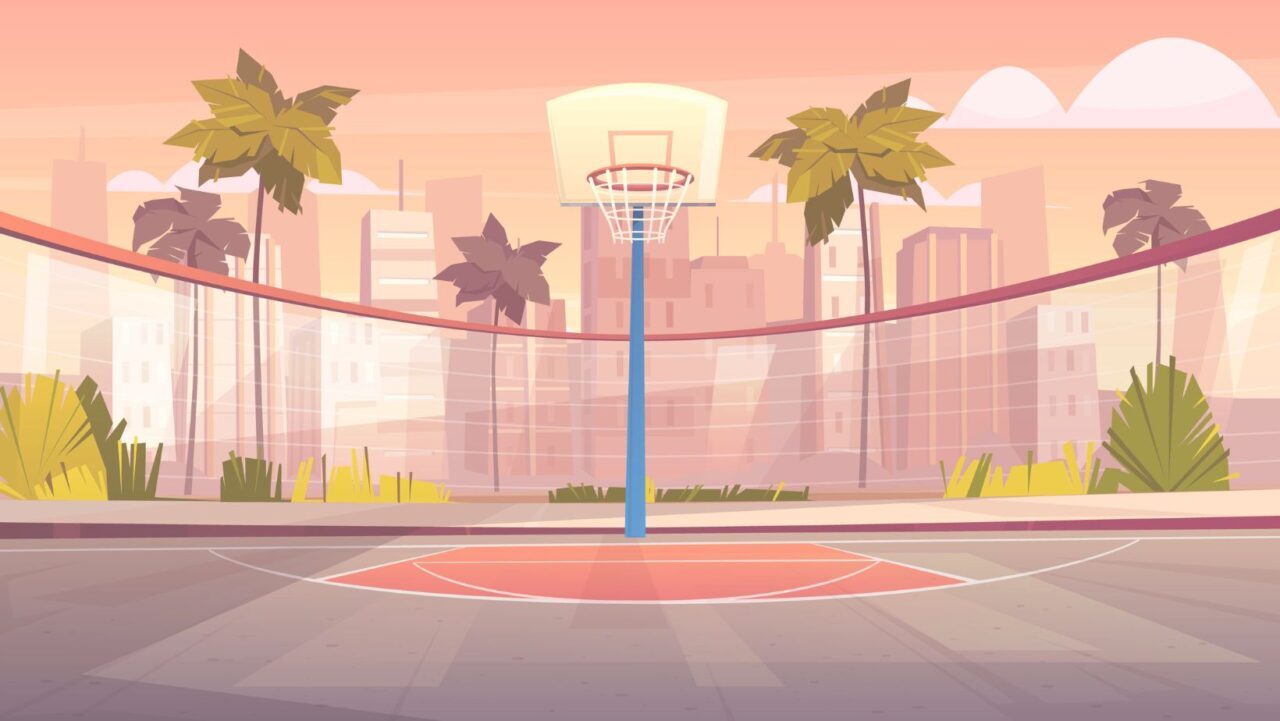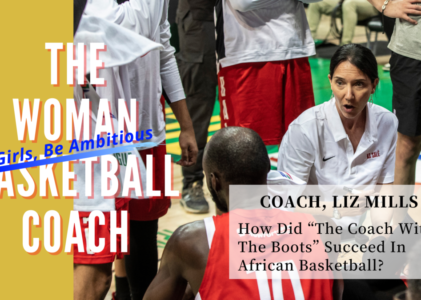【The Woman Basketball Coach】Liz Mills
How Did “The Coach With The Boots” Succeed In African Basketball?
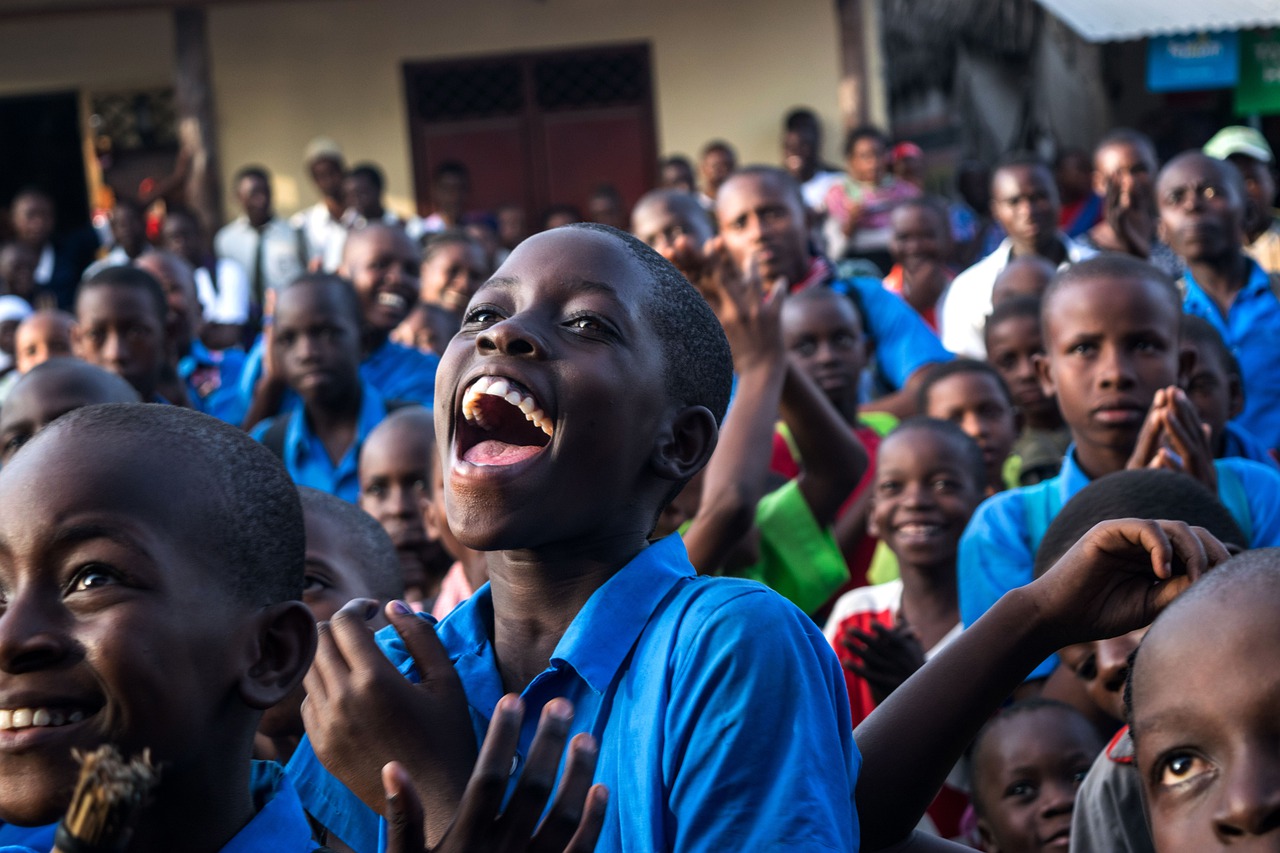
“Hey, can I run a practice session?” About 10 years ago, Coach Liz Mills walked up to the general manager and asked by herself. This was the start of her journey in African basketball.
Now, she became the first woman to head coach a team in the NBA/FIBA Basketball Africa League, and the first woman to head coach a men’s club team in Morocco and the Arab world.
Now she became famous in African basketball as “the coach with the boots” and is invited to several talk sessions. Also, she and her twin sister have just established the Global Women In Basketball Coaching Network in August 2022.
How did she achieved such a success story like some movie, with starting from zero in Africa?
What was her tips of success?
Let’s learn from coach Liz!
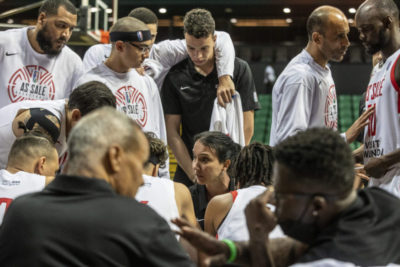
[About Coaching]
Why basketball?
The point of building strong teamwork
What do you like about coaching?
What motivated you to be a coach?
The happiest moment in coaching
The hardest thing
The source of persistence
True meaning of wearing high-heels on games
What to care in coaching
What is your career goal?
A plan after retiring from coaching
Want to be a WNBA coach?
Girls talk
[Digression]
[Basketball In Africa]
The motivation to come to Africa
coaching the men’s team
What does African basketball attract you?
Africa will beat USA!?
Decision to transfer a team
Definition of success of a team
The position of basketball in Africa
Religious influence on women’s sports in Africa
Youth basketball environment
[Life]
Family and environment
Australia vs Africa in building a team
How to adapt different culture
The most impacted person
What is your dream?
A favorite saying?
[Message to female coaches and female players]
[About Coaching]
A: Have you heard of “netball?” It’s a sport played in Australia. It’s predominantly for girls. We grew up playing netball. When I was 10 years old, I started watching Women’s National Basketball League, here in Australia. We fell in love with the sport watching these great female teams, and they had female head coaches. In the ‘90s and early 2000s, that was rare. Even in women’s sports, it was always men. We loved watching it. It was entertaining. It was physical. It was very athletic. And you could play offense. You could play defense. You would told to play in one position and that’s all you could do. Being a twin, I love being a part of a team. Building and succeeding with other people. Basketball was the perfect sport for that.
Q: So, basically, do you love the “team” feature in basketball?
A: Exactly. There is something very rewarding about having to work with other people to achieve a goal, and getting everybody to buy in and work hard, being successful, being sharing the success is so much more rewarding than just being successful for yourself.
A: Definitely. I think it’s always challenging. Even as a player when I was playing, but more predominantly as a coach, you’ve got people coming from different cultures, different personalities, different experiences…so, it’s about finding a common ground and normally be wanting to win a title or qualify or be successful brings people together. Having a goal that we all agree on and putting in strategies that we all buy into. It is not enough to say “we want to win.” But this is how we’re going to win and getting people buy into that. We build the relationship so that people would know that we care each other, and we respect each other. That’s how you build toward being a successful team.
A: For me, I love building relationships with people and working toward a goal with a group of people. I think that’s what I love about coaching. I like helping to develop players on the court. But off the court, I’m learning from the people I work with. It’s like a corporate environment. We’re all learning from each other. I think that’s the beauty of coaching, working in a team.
A: Watching the WNBL, the Women’s National Basketball League. I saw the head coaches were women. I thought “I want to be like them when I grow up.” They were successful. They were smart. They were powerful. And They were leaders. Visibly being able to see role models is something that I think it’s really important. Because if I didn’t see them being successful, I probably would have never thought about being a coach. Seeing those coaches, I thought “hey, that’s what I’m doing anyway with junior clubs. Let’s do it in more official manner.” I was very strategic about building myself up as a coach.…I went to university. I did sports management/sports science degree and then I did master in coaching. This is what I’m going to do. I was inspired definitely by those coaches in the WNBL.
A: I think it was last year in Kenya when we were qualified for Afro basket. Several reasons. Because it was working with that team to qualify, they hadn’t qualified for 28 years. They hadn’t been in the AfroBasket for 28 years. We beat Angola who were the 11-time African champions. This was a very successful team. For me, it was becoming the first woman to qualify a team for FIBA continental championship.
Back in the early days in Africa in 2012, when I was coaching a Zambian club team. We went to what was the southern African club championship and I coached against Angola for the first time. They beat us by 30 points, 40points, etc. They were just so much better. I said to myself “You know what. I’m gonna coach a team, I’m gonna beat Angola, and I’m gonna be the first woman to coach AfroBasket.” And 10 years later. What did we do? We beat Angola, and we qualify for AfroBasket.
It’s all full circle for me. It took me 10 years. There was a lot of ups and downs. That game…we qualified for Afro, can we get back to Afro for the first time in 20 years, I’m the first woman to coach the Afro, and I finally achieved my goal. That was probably the happiest moment for me.
It’s a very long journey. It’s all about being persistent, being resilient, and never losing focus.
Click here to watch the whole game.
A: I immense coaching particular is ego management. You’d spend a lot of time having to navigate players’ egos. I’m not sure if you do that in women’s team. But for me, this is something really found it’s time consuming. I feel like my time could be better spent. But it’s just something you have to do on the men’s side of basketball.
Instead of just being like “hey, let’s focus on team things,” you’ve really got manage ego of these players.
Q: Do your players fight on the court?
A: It gets very competitive. Sometimes it boils over and it can get a word and a little bit physical. That can happen women’s side as well. For me, it’s just a natural part. People want to win. People want to get better. It’s a way of challenging each other. So I don’t necessarily see this bad thing, but if it gets out of hand, I’ll step in. I’ll cool people down.
As a woman, sometimes it’s challenging not with my team but opposition on the other teams, not respecting that I am a head coach. Just changing mindsets. It’s a process. And it’s challenging. It’s something that I’m constantly having to do.
A: I think it’s just something that has been instill with me by my parents and my sister. If you fail, you get up. If you are not successful, you try another way. I also take being a role model as a very big responsibility. I’m the only woman doing what I’ve been doing. I have so many people around the world, female coaches in particular, sometimes men as well, being like you’re the role model that we need it. That’s why I try to be really visible, I try to be very outspoken, I try and lead by example. Whenever it gets hard, I think “No. I’ve got to keep going. I’ve got to prove that women can be successful coaching men. I’ve got all these people looking at me.” I use that as motivation and inspiration. They are counting on me. I’m not gonna let them down. I hate letting people down. The thought of letting people down motivates me.
A: It’s been my trademark here in Africa for about 10 years. I remember watching those female coaches in WNBL, they were dressed in business suits. They might be wearing flats, but they always looked professional. Each coach has a different style. There is no right style or wrong style. But for me, I thought, the game is business, that’s business time. I want it to look very professional, but also wear the team gear. I would wear boots in the office if I was working in the office. I would wear boots and a blazer and a coat. That’s what I’m doing. So for me, it was about being professional, and also remaining people that “Yes, I’m a woman and I’m very proud to be a woman.” I think the boots in particular our strong message because you can’t ignore them. That’s my reasoning.
We are all creating brand as well. People recognize me because of that. I tried to change, I wore high heels, normal ones. Then they were like “where are the boots?”

A: It’s about building relationships. Building relationships based of respect, understanding, and accountability. Those three things are really important. If you like someone, it makes it easier obviously. If you don’t, it’s falling back on those principles: respect, understanding, and accountability. And trying to always put yourself in their position. Coaching is all about relationship. It doesn’t matter how many X’s and O’s, how tactical, or how strategic you are. If players don’t understand that you respect them, you’ve built relationship with them, they don’t care. So that’s the foundation of my coaching.
A: My career goal is to be the first woman to head coach an African men’s team at The World Cups or The Olympics. That’s my goal.
Aside from that specific coaching goals, I want to continue raising awareness about women in sports, female coaches, and moving us toward that gender equality, and promoting the fact that, especially for coaches, we should be hired based on skillset, experience, and qualification. Nothing else. Doesn’t matter whether a man or a woman or non-binary. It’s those three things that matter. That’s it.
A: I got a good friend of mine. We were discussing going into public speaking and consulting…and building a company around promoting leadership, gender equality, inclusion…that kind of impact. So we can go into corporates, we can go into sport clubs, or we can go into politics. All those different avenues, but using both of our experiences in sport to promote a quality in all sense of the world. I also try a mentor a lot of female coaches. That’s something I’m passionate about as well. Focusing on Africa, but it could be anywhere.
In August 2022 I launched the Global Women In Basketball Coaching Network. The Global Women In Basketball (WIB) Coaching Network is the first international network for female basketball coaches. The mission of the network is to connect female coaches from around the world on a platform where they can engage, empower and elevate each other to success.
A: I think it’s an interesting question and I get asked a lot.
I have been coaching the men’s side for 10 years now. Unfortunately, I don’t follow the women’s basketball the way I used to because I’m looking at men, I’m looking at African teams, I’m looking at Africans playing in Europe. I believe in having a healthy balance. Basketball for me is NOT in my life. If I try to watch women’s games as well, then I’ll be basketball 24/7. So for me, the WNBA is something that I’ve never thought about because I don’t coach women. It’s the same thing. Basketball is the same thing regardless. But I’m on the men’s side. I’m concentrating on coaching men’s leagues. That’s not to say I’m thinking about coaching in the NBA. I don’t. I wanna coach in Africa. I might spend a little bit more time in Europe and get some experience there. But my passion is for developing the game in Africa. If I coach in Europe or if I coach in Asia, so be it. That’s for experience and to become a better coach. But the WNBA is not something that I think about.
A: I think I would be amazing. There was an assistant coach for a Senegal club team in BAL. She did a great job and I thought myself if we were on the same staff, would that be great?
I don’t have any female mentors. So I always go to my male mentors. Sometimes, it just needs a woman. It just needs a talk to them and be like “%$’*”$’’”#&&#%.” You can’t do that with men. It can be very lonely at times.
——————————————————————————————————-
Digression
Me: Please come to Japan. We need it.
Liz: I would love to come to Japan. I’ve got players of mine who played in Japan. I heard so many great things. Just in terms of those gender, that’s the only thing…I’ve gotta get there.
Your women’s team is amazing.
Me: Yes. We got the second prize in the Olympics.
Liz: Exactly. But it’s a man who is coaching, right?
Me: Yes. Tom Hovasse.
Liz: Yeah, we need to change that.
Me: What about Australia? Australian basketball is pretty strong.
Liz: We are the second best basketball country in the world in FIBA ranking. People have a lot of respect for Australian coaches and players. To be honest, being an Australian has really helped me be able to get my foot in the door in Africa. I don’t do any coaching back home, though.
Me: Would you like to?
Liz: No, no, no. Australian basketball is a boys club. It’s very heavily tilted to the men. And because I’ve been out of basketball in Australia for 10 years, I’m not in the club anymore. They’ll be like “Oh, she is else.” But I have nothing to do with them.
Me: That’s sad…
Liz: It is sad, but also I think I want to promote coaches to think outside the box. Just because I was from Sydney doesn’t mean I have to coach in Sydney. There is great coaching opportunities all around the world. It’s not even about getting better as coach. The life experience. If I came in coach in Japan, it would be amazing personal experience. So that’s what I think about. I think coaches don’t understand the life experience makes you a better coach. That’s why I’m always like “don’t just coach in your country. Go outside.” A lot of coaches are very afraid to change. They are comfortable coaching at a club for decades. I think they are missing out.
——————————————————————————————————-
[Basketball In Africa]
A: It was seeing the talent and potential. The fact that they didn’t have a lot of great coaches that would be able to develop that. Because the biggest challenge in African basketball is coaching and administration. Federations and clubs are not very well managed. You can’t develop basketball players if you don’t have quality, experienced, qualified coaches. I thought there was a gap here. I can fill the gap with my team and that can have a ripple effect with other teams learn from us. I can go and do some guest coaching with other teams. I had a love to be in Africa. I loved the people, the cities, beautiful sceneries, animals…what’s not to love?
So I was like I get to be in Africa and I get to coach which I love doing. They are talented, open to learning, very coachable. They want to get better. As a coach, you love working with the players like that. It was an easy decision to come and coach in Africa.
A: Not at all. I used to be like “women and kids. That’s all I can coach.”
A friend of mine invited me to the pre-season tournament in Zambia for the men’s team. I only went as I was just gonna watch like a fan, woohoo and cheer people. I watched this team, Heroes Play United. I thought these guys had a lot of potential. They didn’t win the tournament. They came the bottom half of the tournament. But these guys were actually really good. They didn’t have a coach. I was like I’ll just go and ask them. I didn’t see my gender as a problem actually. This is in Africa, which is funny. I walked up to their team manager, “hey, can I run a practice session?” He was like “Umm, I’ll give you one.” One turning to me coming back the next day, me moving into Zambia, me coaching that team. I think I’ve been really lucky to have club presidents, federation presidents who open minded and who don’t see gender as a problem. Up until the pre-season tournament, I have never considered coaching men’s teams.
A: I think it’s the pace, the athleticism…it’s fun to watch. In Japan or in Australia, basketball is very structured. But it’s a lot more free flowing in Africa. They just let the game come to them. Not to say, we run plays. We have defensive systems. But they just more open to play in the flow of the game. I think that’s what makes it really fun to watch and fun to coach. When I first started in Africa, it was very frustrating. But it taught me as a person and as a coach to just be a little bit more open, read in reacts, let the game, and let life in general, come to you. Don’t plan everything.
Q: Did the free style play fit to you?
A: It’s not a natural fit. I’m a very organized person. I plan. I like to be very prepared. It was something that I had to learn to appreciate and adapt to. Not to say that I let loose. It was like a compromise, coming into the middle.
Q: As a coach, is it easy to coach free style or is it easier to coach organized style?
A: Teaching people how to make a good decision in basketball is a very hard skill. It’s the same principle in Africa. You just give them more room to make the decision. You approach practice in a different manner. You put it in a structure in terms of offensive sets and defensive systems, but also understanding that you’re in a game that they gonna make different decisions or you just got to allow them to play a lot more motion instead of pulling up there and being like “run horns” or “run flex.” Just accept…60:40. They run the sets. 40% of other time, they just gonna play. And trusting them to be able to do that. That’s building a trust practice. Building those decision making skills in practice. That’s your responsibility as a coach. Regardless of whether you playing people more structured or a little bit more free flowing.

A: I think African basketball has a long way to develop. The next generation players that are coming through are better coached, better skilled. I think maybe we’ll see after that generation, we gonna see African teams really challenged the U.S.A., Europe, Australia, and Asian teams. The rest the world isn’t noticed their time is running out because once Africa gets the administration right, gets the coaching right, it’s game over. Because, basically, if you think about it, it’s like the Americans but Africans. At the end of the day, you are gonna build teams that would rival everybody else. It’s hard to put time frame on it. In 10 years, their developing was slow, but now they are developing rapidly. Whether it’s 5, 10, 15 years, there will be the time where we will see African teams getting on a podium at the World Cup and the Olympics.
A: It’s about what experience can I get from being in that country, what are the people like, what’s the culture and history? That’s the big thing for me. But also what’s their team. What’s the team like. Do they have plays that I feel that I can work with, that I want to work with. How they been a team that’s building, how are they successful. Those are the some of the criteria that I look at. Can I be a better person and can I become a better coach by going to this country and working with this team? Can I build a successful team while I’m there?
A: Success means different things to different people and different teams. Say Kenya, success is qualifying for Afro Basket. It’s not winning Afro Basket. And the team like AS Sale from Morocco, this is a very successful team. So for us, winning the Basketball African League is the goal. If we don’t win, that’s not success. For me as a coach, I enjoy working on that spectrum. Taking a team like Kenya, helping them raise to the next level, or working with the team like AS Sale and winning the championship.
A: The number one sport across every country in Africa except for Angola is soccer. Basketball is the number one sport in Angola. That’s why they are very successful for years. Football gets a lot of air time. It’s what everybody talks about. But basketball is probably the second, possibly the third, because volleyball is very big here as well, second or third sports in Africa. The introduction of the Basketball African League, that is definitely raising the profile of the sports. The new FIBA system, home and away, different qualification windows, there’s more games now play across Africa. That’s helping to promote sports as well.
A: I bought into the propaganda when I came to North Africa and Islam. It’s actually a lot more open and liberal in Morocco that I thought it would be, which was great. They wouldn’t have hired me as a coach if they weren’t. If you think about it. I wouldn’t be coaching in Morocco if they didn’t think women could do the job.
I think we, in the West, sometimes have this thought that in Africa everything is backward. But actually it’s not. Look at me in my career. 10 years. Where else in the world men could have me head coaching a men’s team right now? In Australia, it’s not happening. In America, not happening. So Africa is being very progressive. In terms of African women, there has been head coaches of club teams, national teams, men’s teams in Africa during my 10 years. So it’s happening here. But it’s incredibly difficult. There are 54 countries in Africa. Every country is different. There are countries where women are not allowed to necessarily play sports or attend sports. But in other countries, they are playing. They are representing. I think it’s really important that we don’t generalize the entire continent because 54 countries are really different across all over them.
It’s exactly the same as if I said “Asia.” You must take account into Japan, Korea, China…and everybody is very different culturally and historically. It must be super super frustrating when people do that.
A: Most countries, they would have basketball, but very loose. They don’t have teams. They don’t have many competitions. And only at the high school level. Not in primary school. A lot of kids will play for academies, or they just play pick-up. There is no organized basketball for juniors. There are a couple of youth leagues, starting to develop in different African countries. That’s exactly what I was speaking about. Administration, which is grass root development of basketball, and coaches who can work with juniors and kids. So that’s something that definitely need to be improved in Africa.
[Life]
A: Very lucky to grow up with two very loving and supporting parents, my twin sister and we had an older sister as well. We were always encouraged to pursue our dreams and goals regardless. We had a very good education. We played sports, we played music, we were in a debate teams… I exposed to a lot of different aspects of a society and had a lot of different interest growing up. That shaped into being really rounded individuals. I was always into sport. I was kind of like a tomboy. Very lucky to have growing up in Sydney with a lot of opportunities and supportive family.
A: Definitely. Even if I was coaching in Europe or U.S., culturally and how we approach a certain situation or a team will be different based on our own culture and his training experience. It’s being able to respectful and being able to adapt, and being able to compromise. Because there is no point “I was in Australia. I’m not gonna come into Morocco” and be like “this is how we do in Australia.” I’m enjoying thing that’s helpful in any sense of in any environment. It’s making people understand that I’m coming from this perspective, but I’m open to learning how you approach the game or how what you think success looks like. Building that together with players, coaching staffs, and management.
A: I think it’s all about being open to learning. Every time I go to a new country, I make sure I do my homework. I learn about their history, their culture, their religion, and being respectful. Especially if I talk about my time in Ruwanda, for example, this was post-1997 genocide. Understanding history and where they are as a country now, what I can talk about and what I can’t talk about. What they are as people very welcoming, warm, gentle. So it’s understanding trauma that some of the players would have gone through, and being respectful about the history of the country. The same applies to wherever I go.
Understanding history and religion being another one. Whether I’m in Christian country or Muslim country, I’ve got to be respectful.
A: I think it was coach Carrie Ann Graf. She is an Australian basketball coach. I remember watching her and listening to her, seeing how she carried out, “I just want to be you. I wanna be you when I grow up.” She was the reason why became a coach.
A: Like any human being, you want to have a positive impact those around you, you want to inspire people, and you want to grow and develop as a person. I hope to continue to be able to do that until I’m gone and I leave a legacy that people feel inspired by.
A: “We rise by lifting others.” Only when we help others, can we also be better. When you see across my social media, I say it a lot. “I can only be better if you are better. You can only be better if I’m better. So we need to work together.” Being part of a team and working together. That’s what it’s all about.
[Message to female coaches and female players]
To the female coaches, it’s about deciding what goal you want to achieve. That might be starting a coach or coaching a championship team or coaching men. Deciding what your goal is and work hard and smart. Everyday toward the goal. There are no days off. You will have to be more qualified, more experienced, more hard working than anyone else in the room. And understand that when people say no, it’s their loss, not yours. You will have to go out and create your own opportunities. That is fundamentally I am where I’m today because I created all my own opportunities. I went up and approach that team in Zambia. I flew to Tunisia to approach teams to coach them for the 2019 World Cup qualifiers. That’s how I ended up on a Cameroon coaching staff. No one came and said “hey Liz, do you wanna come and work for us?” No. I approach teams. I created, I built myself up so that people could not overlook me. So that’s my advice for young women. And girls who want to coach, be ready to work extremely hard and smart about how you are working. Take no and go create your own opportunity somewhere else. Be determined and resilient. Go out have some fun. Break some barriers.
Q: How can you believe yourselves?
A: You are gonna believe in yourself because no one else will. I think how I combat a doubt is I’m very well prepared. I’ve studied hard, I got the experience, I got respect from the players that I worked with. So I have every right to be where I am. And I worked hard and smart to be where I am. I think when women feel prepared, the doubt goes away.

Global Women In Basketball Coaching Network
——————————————————————————————————-
For requesting an interview, writing, ad placement, or basketball event coordination in Japan, feel free to contact us.
